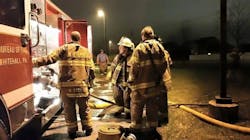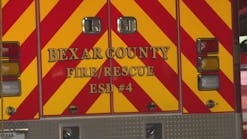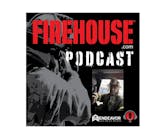PA Firefighters Say Chief Chasing Away Volunteers
By Sarah M. Wojcik
Source The Morning Call (Allentown, Pa.)
April 13 — Whitehall Township commissioners were alarmed Monday to learn that several veteran firefighters have left the Whitehall Township Fire Department over disputes with how the new chief is running things.
Don Dreisbach, a volunteer who left after serving for 37 years, told commissioners that Chief David Nelson’s treatment of members and training requirements were driving away longtime volunteers like himself. Nelson said many volunteers have felt disrespected by Nelson’s management style.
“Chief Benner is rolling in his grave,” Dreisbach said, referring to the beloved Chief “Bobby” Benner, who died in 2016 after leading the department for three decades. “Dave has made it his point to change or erase everything Chief Benner did or stood for.”
Nelson is requiring 80 hours a year of training for members. The only requirements previously were that members respond to 25 percent of calls and attend 50 percent of the allotted training available in order to qualify for the $250 a month stipend awarded to members with 30 years in the department.
“When I see veteran volunteers walking away, it’s very troubling to me,” Commissioner President Dennis Hower said. “It will not go unheard or swept under the rug. We’ll get to the bottom of this.”
Commissioner Joseph Marx Jr. said he was contacted by several firefighters with complaints, but he wanted to see all parties hash out the issues and find a way to coexist.
“This is a very sticky situation,” he said. “For Chief Nelson, in his defense, it’s hard being the new guy. I’d like to get everyone in a room and slug this one out.”
Nelson, on Wednesday, confirmed that eight of the department’s 114 members have left since he took over in 2016, but he strongly disputed any desire to dismantle or rearrange Benner’s department. He suspected that his more rigorous training requirements were the main source of frustration for some members.
But he said most of the volunteers seem eager to learn and have embraced the training opportunities. The state does not require any mandated training for volunteer firefighters, but Nelson said he wants his men and women prepared when responding to emergencies.
“The majority of our department is actually stepping up to this and doing it,” Nelson said of the training requirements. “We just have people who aren't willing to make those changes. And that’s fine. We wish them best of luck. But we want to make the department as safe as we can for firefighters and for the township of Whitehall.”
The annual 80-hour requirement does not seem excessive, according to Don Konkle, executive director of the Pennsylvania Fire and Emergency Services Institute. Modern fires, Konkle said, aren’t the same slow burners that veteran members might remember—where training was done in the course of a live call.
“With synthetics today, flashover happens 10 times more than it did years and years ago,” Konkle said, describing the dangerous phenomenon of fire spreading rapidly inside a burning structure. “You don’t have that luxury of training people the way we used to.”
A basic firefighting course is required to earn a yellow helmet in Whitehall, which authorizes that individual to enter the inside of a burning structure, Nelson said. When he started, there were about 10 members, himself included, who had training sufficient for interior firefighting.
Since his tenure began, Nelson said that number has climbed to 25 and is expected to exceed 50 members by year’s end. Securing that certificate, Nelson said, requires about 210 hours of training. Seeing so many firefighters in the department stepping up has been inspiring, he said, but it is not required.
Dreisbach said the training requirements implemented by Nelson are barriers to volunteerism, which is already an issue as volunteer departments across the country struggle to attract and keep members. Training is vital, he said, but volunteers with families and multiple jobs shouldn’t be punished with mandated hours.
“I personally believe that every member should make an effort to train, respond to calls and assignments, but I also believe everyone has a place in the department—no matter their disposition,” he said.
Konkle said the dilemma in Whitehall is serious and a familiar one. Making volunteering as simple as possible is important, but so is training.
The basic firefighting course Whitehall requires for interior firefighting matches the practice in most of the state’s departments, he said. But that certificate doesn’t require any continuing education, and so regular training can provide updated methods and refreshers that can save a life.
“This is volunteered time, but you don’t want someone who’s unqualified showing up at your front door and you don’t want to injure a firefighter by asking him to do what he hasn’t been trained to do,” Konkle said.
Flexibility becomes essential, Konkle said and Nelson acknowledged as much. Whitehall offers training on Mondays and Fridays as well as online courses. Nelson said he’d work with anyone struggling to meet the training requirements. Older members unable or unwilling to commit the time can become honorary members, Nelson said, and help out in ways other than venturing into burning buildings.
“We don’t want to lose any of our firefighters,” Nelson said. “We want our members to stay a part of the department, but we need those who are active to be properly trained.”
___
(c)2018 The Morning Call (Allentown, Pa.) Visit The Morning Call (Allentown, Pa.) at www.mcall.com Distributed by Tribune Content Agency, LLC.






